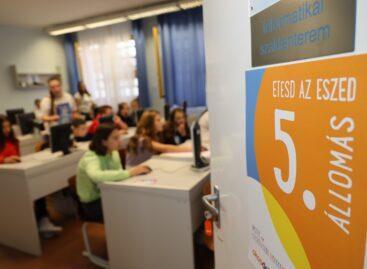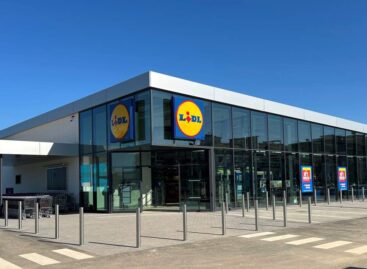Quality, trust and safety
Global multinational companies have special responsibility in providing the Earth’s growing population with safe and nourishing food products. Based on their own strict process regulations and requirements, they now deepen their cooperation by elaborating collective standards, in order to make the issue of comprehensive food safety transparent and widely implementable across the whole value chain. We asked three managing directors about global, regional and local details and Mike Nixon – Nestlé Hungária Kft., András Gyenes – Unilever Magyarország Kft. and József Tarsoly – Coca-Cola HBC Magyarország Kft. answered our questions. Nestlé is the world’s leading nutrition, health and wellness company. – The term ‘glocal company’ really suits us, because we are global as our products can be found in more than 130 countries, but we develop our local portfolios with taking into consideration individual countries’ taste preferences and culture. As regards food safety and quality assurance, in every part of the world all Nestlé factories and suppliers have to comply with the same strict requirements and standards – says Mike Nixon about Nestlé. Unilever’s brands are available in the food product, cosmetics and household cleaner markets of more than 190 countries. – Our brands are present in the everyday life of people, from feeding the family to keeping the house clean. Our Code of Business Principles states it clearly that we can only sell products that comply with the strictest quality and safety standards – emphasises András Gyenes. – The basis of our company’s success is that consumers trust our products, therefore our quality management system is tailored to cover all areas of Coca-Cola Hungary’s operations. To ensure the quality of our products, we not only inspect the manufactured beverages, but the ingredients and packaging materials provided by our suppliers also undergo the strictest examinations – says József Tarsoly about the main areas of the food safety topic. All three companies are active members of The Consumer Goods Forum (CGF), the 400 members of which are among the biggest manufacturing and retail companies in the world. Its motto is ‘Better lives through better business’. Member companies have a total combined turnover of EUR 2.5 trillion, more than 10 million employees and they employ another 90 million people indirectly. Under the and Safety and Health pillar the organisation established the Global Food Safety Initiative (GFSI) Working Group, the goal of which is to create a platform of cooperation, a forum for mutual thinking in competition-neutral areas for actors in the industry. – Food has probably never been safer than it is today in Europe. However, supply chains have become longer and more complex so when food safety incidents happen they can have a wide effect. With social media news travels very quickly around the globe, giving the perception that food is less safe than it really is – says Mike Nixon. When it comes to food safety and quality standards all Nestlé factories across the world and their suppliers have to comply with strict food safety and quality standards. This is identified as an absolute non-negotiable priority in its Corporate Business Principles. Nestlé factories’ harmful substance and waste production is being consciously reduced on local level too and as much is being recycled as possible. Unilever fully agrees with the objectives of the GFSI programme because in addition to optimising costs, the reducing of risks, the development of competence and capacity building and the creation of an international platform create an opportunity for cooperation and knowledge sharing on both local and regional level. – Unilever has every reason to play a leading role in the organisation as the company has been on the top of the Dow Jones Sustainability Index for 14 years in the food category. The food safety and product quality strategy of Hungary’s leading firms is of very high standard – says András Gyenes about the supply side. Unilever believes that the company has to keep improving its food safety system and the quality of its products because these are the key drivers of development. By development they don’t only mean innovation but also the bettering of materials purchasing, manufacturing and the supply chain. Coca-Cola HBC’s full corporate activity complies with the standards of the ISO 9001:2008 quality management certification. – In every stage of the manufacturing process state-of-the-art, closed technology is used, and complying with the highest hygiene standards and operating the manufacturing systems with the greatest expertise also contribute to guaranteeing the perfect quality of products – emphasises József Tarsoly. – In both of our production units there are physico-chemical and microbiological laboratories, what is more, we were the first in the sector in Hungary to introduce the real-time microbiological control system (real-time PCR) that facilitates the identification of living microbes based on their DNA content – the managing director explains the stages of the safety process. n
Related news
Related news
SHEIN’s first Hungarian store has opened
On December 10, 2024, at noon, SHEIN’s first Hungarian store…
Read more >Schoolchildren solved a record number of tasks: the popularity of the Feed Your Brain educational program remains unbroken
The 2024 Challenge of the health education program launched by…
Read more >TikTok conqueror: Dubai chocolate craze at Lidl
As the Christmas holidays approach, there is an increasing demand…
Read more >



